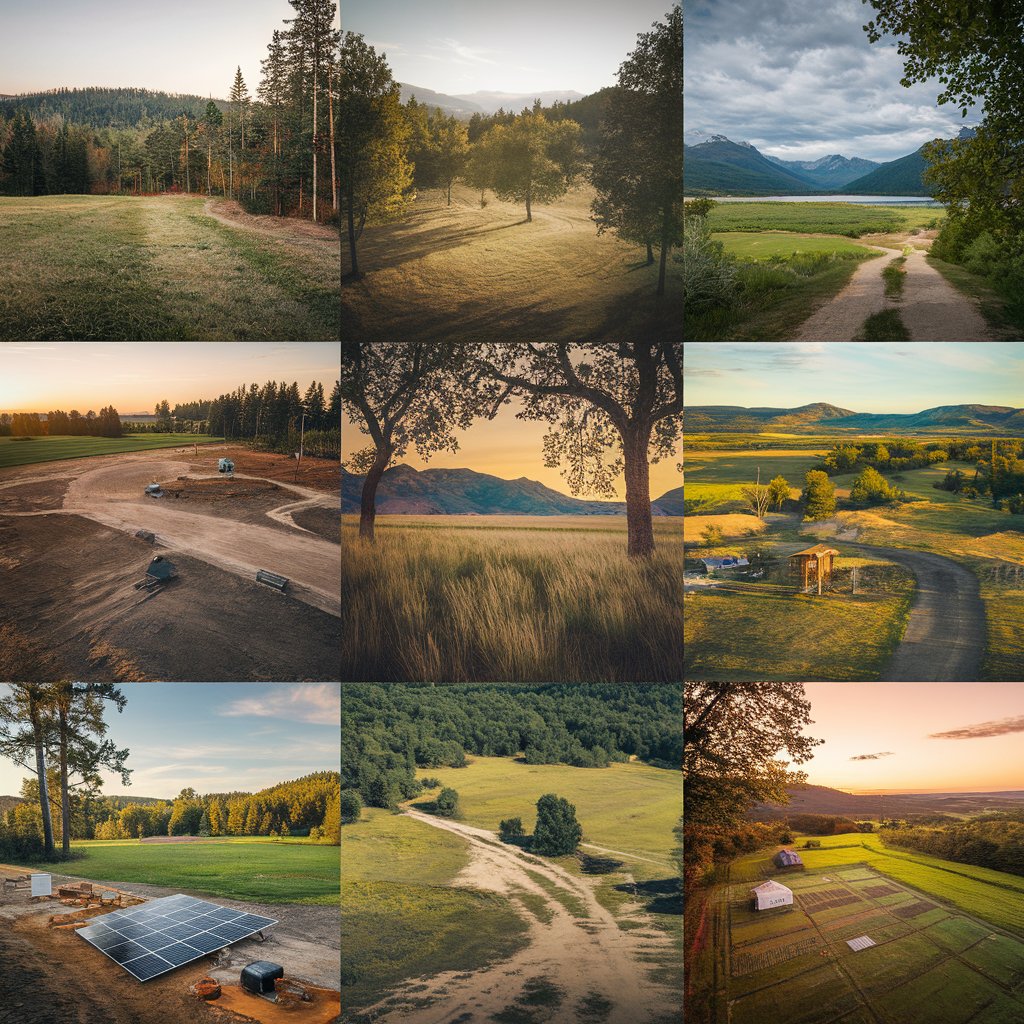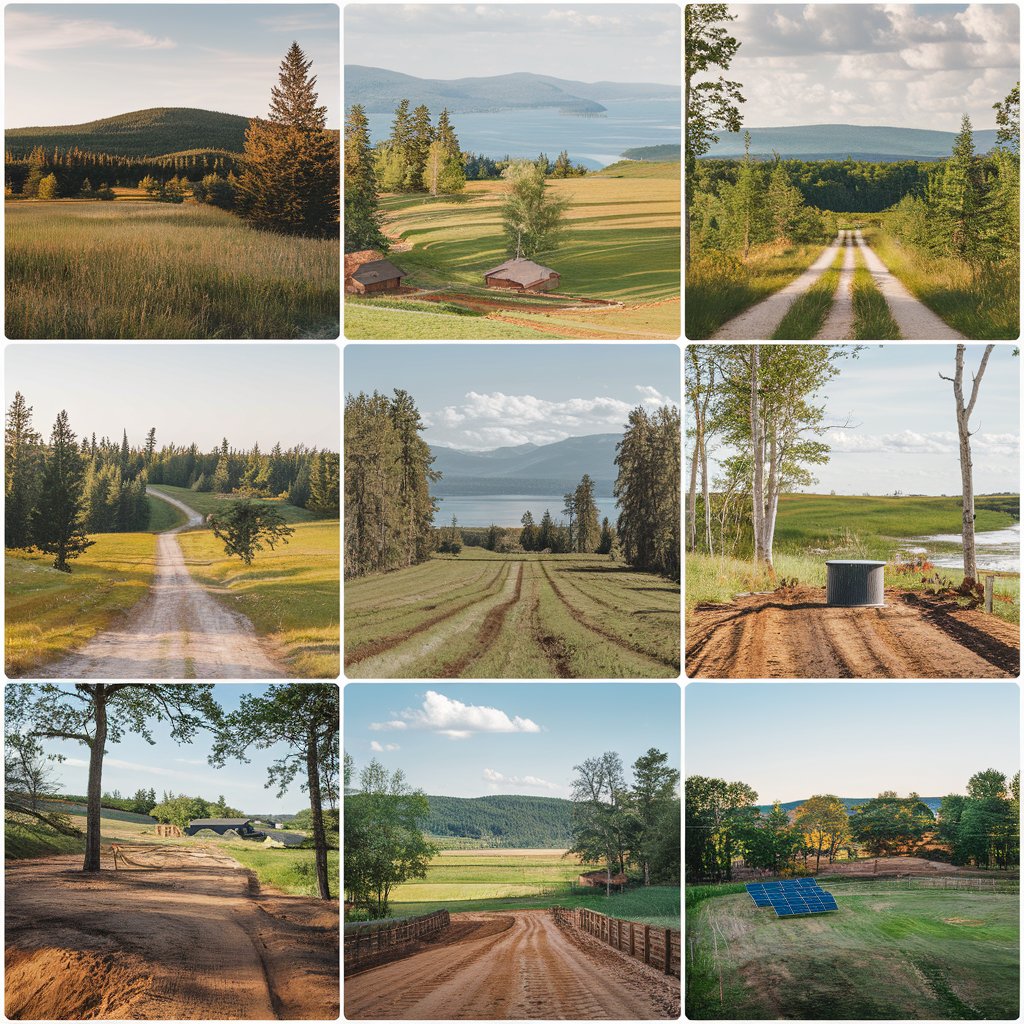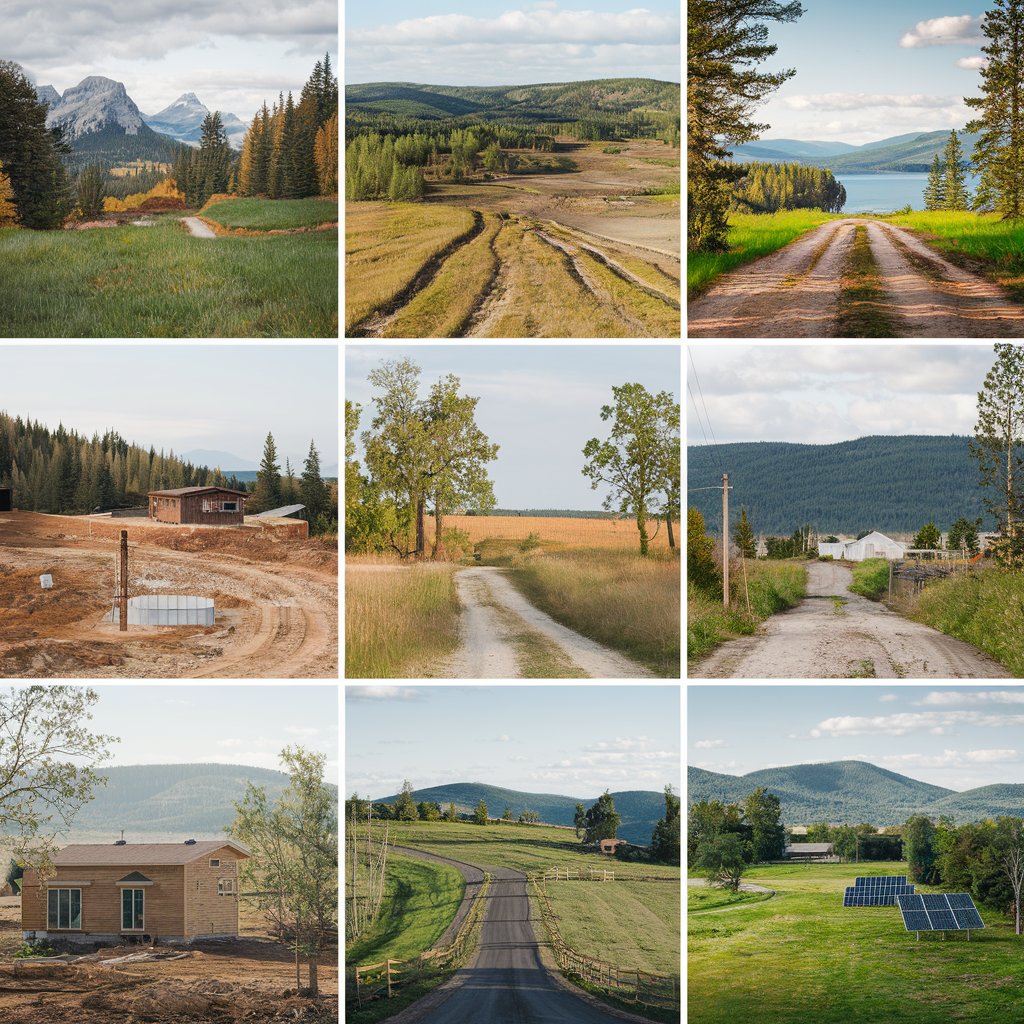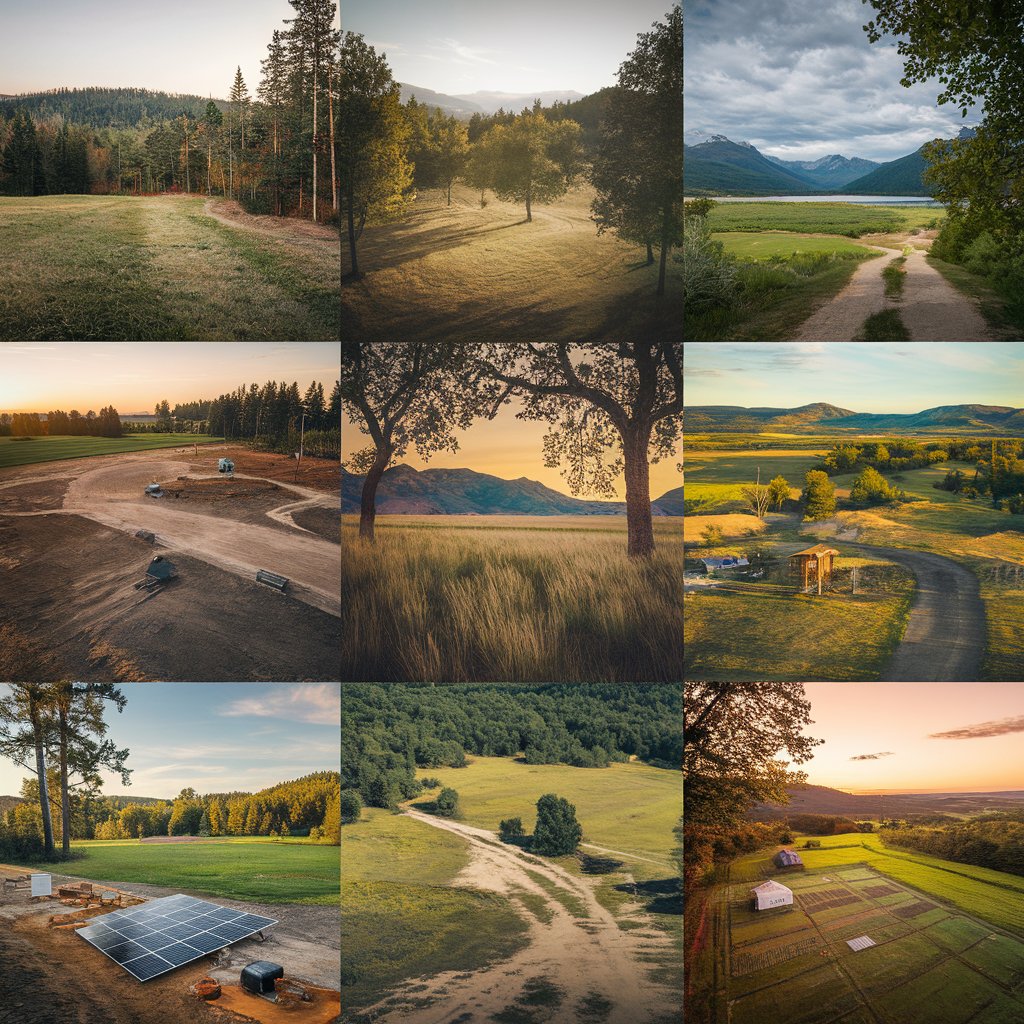Selecting the ideal site for your rural home is a crucial decision that significantly impacts your quality of life and enjoyment of nature. This choice should be made carefully, considering a range of essential factors to ensure a harmonious and practical living experience.


Key Factors in Choosing the Location
1. Distance from Urban Areas
- Access to Services: While a rural home emphasizes tranquility, it’s beneficial to be within reasonable proximity to essential services like hospitals, schools, and markets. Being close enough to urban areas ensures access to healthcare, education, and shopping without excessive travel.
- Privacy and Quietude: On the other hand, the site should be sufficiently distanced from urban noise, pollution, and congestion, allowing you to enjoy a peaceful and comfortable environment. Striking the right balance between convenience and tranquility is key.
2. Nature of the Land
- Soil Quality: Assessing the soil quality is vital to ensure it’s stable and suitable for building. The site should be free of geological issues, such as landslides, which could compromise the home’s structural integrity.
- Slope and Elevation: Ideally, the land should be relatively level to facilitate construction and avoid costly land grading. If the property is on a slope, ensure it has proper drainage to prevent water accumulation around the foundation.
- Wind Conditions: Understanding prevailing wind directions can be beneficial, particularly if the area experiences strong winds. Avoid locations exposed to extreme wind to protect your home and maintain comfort.
3. Natural Resources
- Water Supply: Ensure access to a clean, reliable water source. This could be via a well or connection to a public water system. Having a sustainable water source is essential, especially in remote areas where municipal services may be limited.
- Electricity Access: Verify the availability of electrical connections in the area, or at least consider alternative energy options, such as solar panels, to ensure a reliable power supply.
- Sanitation and Waste Disposal: Determine the suitability of the location for a septic system or its connectivity to a public sewage system. Proper sanitation is vital for both comfort and environmental health, particularly in areas distant from municipal infrastructure.
4. Scenic and Natural Surroundings
- View and Landscape: A significant benefit of a rural home is the opportunity for stunning views. Choose a site that offers beautiful landscapes, such as mountains, lakes, or forests, adding to your daily enjoyment and the property’s aesthetic appeal.
- Privacy: Consider the level of privacy the location provides. A secluded spot away from neighboring properties or busy paths can enhance your sense of comfort and security.
5. Regulations and Zoning Laws
- Land Use: Confirm that the land is designated for residential use and meets municipal zoning requirements. Understanding restrictions on land use can help avoid issues that could prevent construction or result in penalties.
- Building Regulations: Be aware of regional building codes that may specify limitations on structure size, building height, and approved materials. Adhering to local regulations ensures compliance and avoids potential legal complications.
Tips for Choosing the Ideal Location
- Visit the Site at Different Times of Day: Observing the property during different times, such as early morning or late afternoon, helps you understand variations in lighting, temperature, and even potential noise sources.
- Consult Local Residents: Speaking with nearby residents can provide valuable insights into the area, including climate conditions, seasonal variations, and the availability of services. Locals often know the pros and cons that aren’t always apparent during brief visits.
- Consult an Architect or Planner: Engaging with an architect familiar with rural construction can be immensely helpful. They can assess the site’s characteristics, advise on efficient layouts, and offer design suggestions that harmonize with the environment.

Conclusion
Choosing the right location for a rural home is a thoughtful process that requires careful planning and consideration. By evaluating factors like accessibility, land quality, available resources, scenic appeal, and adherence to local regulations, you’ll be better prepared to select a location that meets your needs and enhances your living experience. Whether it’s for a seasonal retreat or a permanent residence, a well-chosen site can offer you the perfect balance of comfort, beauty, and practicality.
Do you have more questions or need specific advice about finding the perfect site for your rural home? Let’s discuss further!

